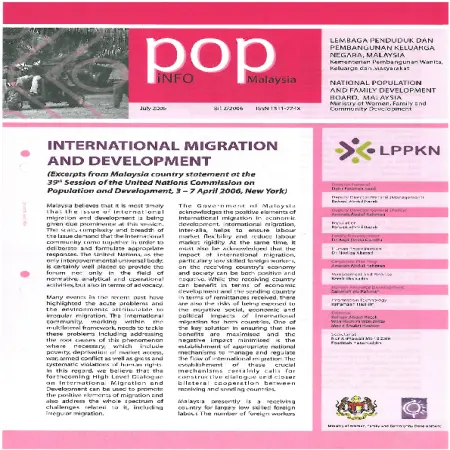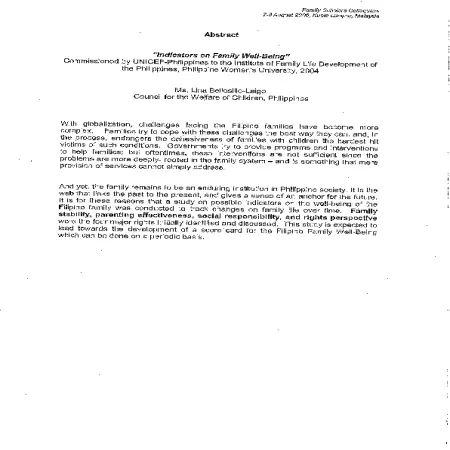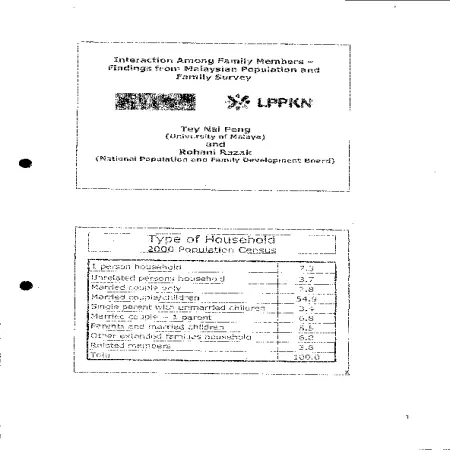Browse by Year
Results for Year : "2006"
|
|
International migration and development
Item Type: Newsletter
Editor:
Year: 00/07/2006
Abstract: The Government of Malaysia acknowledges the positive elements of international migration in economic development. International migration, inter-alia, helps to ensure labour market rigidity. At the same time, it must also be acknowledged that the impact of international migration, particularly low skilled foreign workers, on the receiving country's economy and society can be both positive and negative.
|
|
|
|
|
|
Indicators on Family Well-Being
Item Type: Conference or Workshop Item
Editor:
Year: 00/00/2006
Abstract: With globalization, challenges facing the Filipino families have become more complex. Families try to cope with these challenges the best way they can, and, in the process, endangers the cohesiveness of families with children the hardest hit victims of such conditions. Governments try to provide programs and interventions to help families but oftentimes, these interventions are not sufficient since the problems are more deeply-rooted in the family system and is something that mere provision of services cannot simply address. And yet, the family remains to be an enduring institution in Philippine society. It is for these reasons that a study on possible indicators on the well-being of the Filipino family was conducted to track changes on family life over time. Family stability, parenting effectiveness, social responsibility, and rights perspective were the four major rights initially identified and discussed. This study is expected to lead towards the development of a score card for the Filipino Family Well-Being which can be done on a periodic basis.
|
|
|
|
|
|
Interaction among family members: a Malaysian case study
Item Type: Conference or Workshop Item
Editor:
Year: 00/00/2006
Abstract: The perceived relationship among family members are 98.5% of women said that they have good family relationship while 99% of men said the same. Meanwhile, 99.3% of women who did not have financial difficulty stated that they have good family relationship compared to those who have financial difficulty represented by 98.3%.
|
|
|
|







